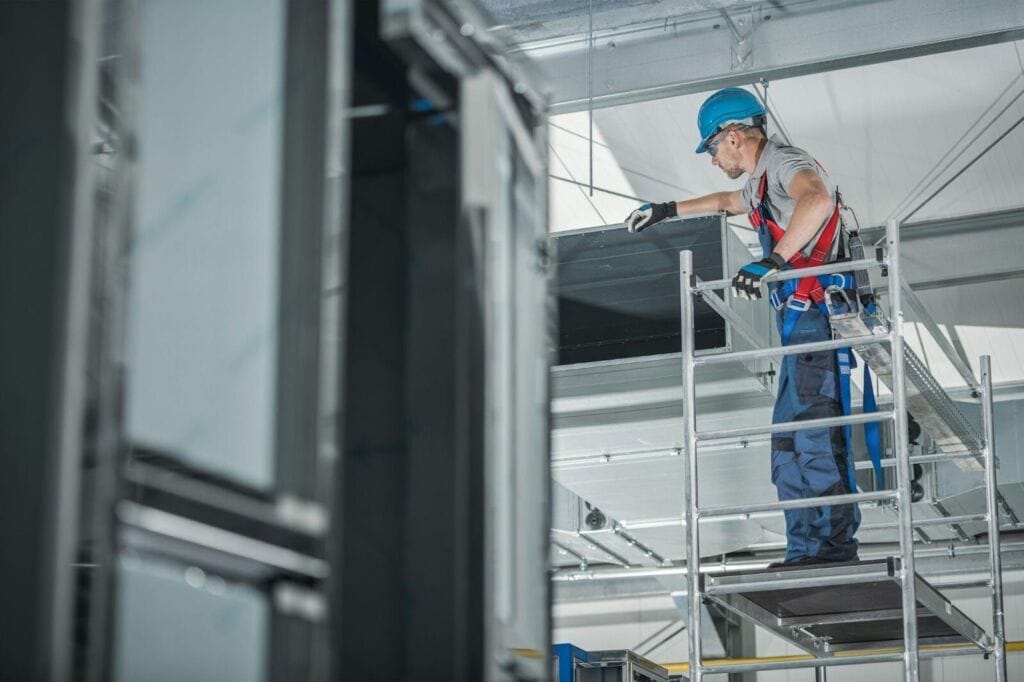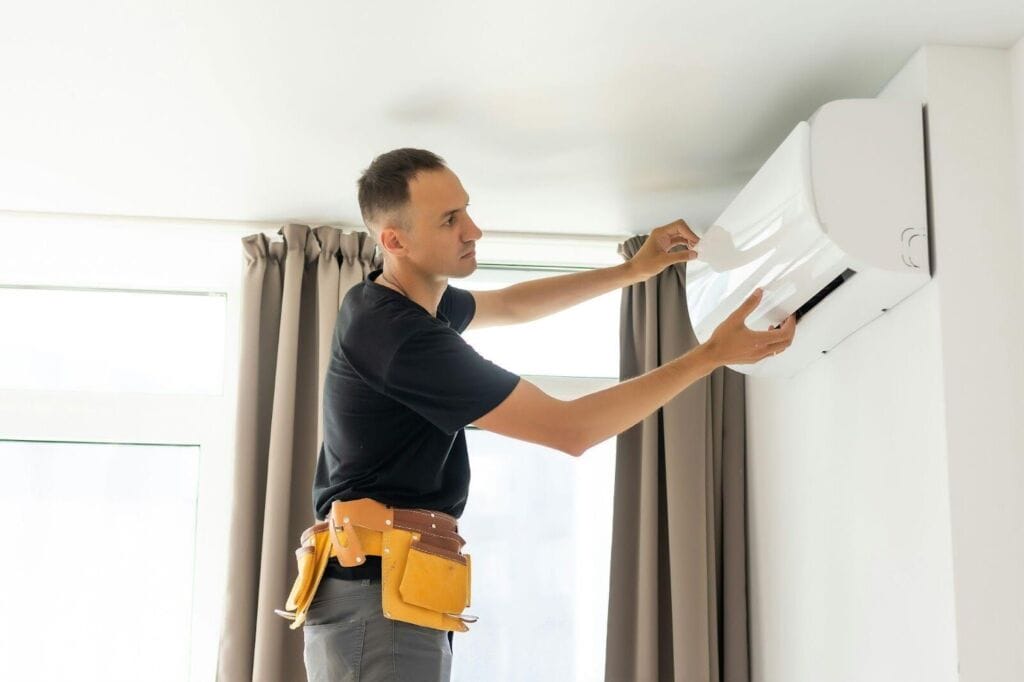In Arizona, few things are as critical to daily comfort as a well-functioning HVAC system. With scorching summer temperatures often climbing above 110 degrees and mild winters that still demand reliable heating, homeowners and businesses alike rely on HVAC professionals to keep their systems running efficiently. But as demand increases and customer expectations evolve, traditional methods of managing service calls, manual scheduling, phone-based dispatch, and paper invoicing, are no longer sufficient.
That’s why more companies are embracing digital solutions like Workiz HVAC Software. By streamlining operations, improving communication, and boosting customer satisfaction, HVAC software is becoming not just a competitive edge, but an essential tool for Arizona contractors navigating the unique challenges of the desert climate.

Arizona’s HVAC Demands Are Unlike Anywhere Else
Living in Arizona means living with extremes. In Phoenix, Tucson, and across the Valley, summer temperatures can soar for months, placing extraordinary strain on cooling systems. During peak season, HVAC contractors often face a flood of service requests, sometimes hundreds of calls in a single week.
Without organized systems, these businesses risk double-booking technicians, losing track of invoices, or leaving customers waiting during the hottest days of the year. On the commercial side, office towers, retail centers, and healthcare facilities require constant monitoring to ensure uninterrupted comfort for tenants and customers. HVAC software helps Arizona contractors tackle these unique regional demands by keeping everything organized and responsive.
How HVAC Software Streamlines Contractor Operations
For many contractors, the transition from paper logs or spreadsheets to a centralized platform is transformative. HVAC software consolidates day-to-day operations into a single, accessible system:
- Smarter scheduling and dispatching: Assign jobs automatically based on technician availability, expertise, and proximity, ideal for sprawling metros like Phoenix.
- Route optimization: Reduce wasted time and fuel costs by sending technicians on the most efficient routes.
- Digital invoicing and payments: Eliminate delays by issuing invoices instantly and allowing customers to pay securely online.
- Comprehensive record-keeping: Maintain detailed service histories, warranties, and compliance documentation in one place.
These features not only save businesses time but also help them avoid costly errors that can frustrate customers and erode trust.
Building Trust Through Customer Experience
In Arizona’s competitive HVAC market, professionalism and reliability are key differentiators. Homeowners and business owners expect more than just a repair, they want clear communication and a polished service experience. HVAC software delivers this by:
- Sending automated appointment reminders to reduce cancellations.
- Providing real-time technician tracking, so customers know exactly when help will arrive.
- Issuing digital receipts immediately after service.
- Collecting customer feedback seamlessly after each appointment.
These touchpoints reassure customers that their time and money are valued. Over time, consistently positive experiences translate into repeat business and word-of-mouth referrals, critical for contractors building their reputation in Arizona’s fast-growing communities.
HVAC Software and Arizona’s Growing Business Sector

Arizona is one of the fastest-growing states in the country, with booming real estate development in cities like Mesa, Gilbert, and Scottsdale. Each new community, office complex, and industrial facility requires HVAC systems for installation, inspection, and ongoing maintenance.
For HVAC contractors, this growth represents both opportunity and challenge. Without scalable tools, it’s easy to become overwhelmed by increasing workloads. HVAC software enables small and mid-sized companies to expand confidently by:
- Coordinating larger field teams.
- Managing multiple projects simultaneously.
- Tracking inventory across different job sites.
- Scaling without losing control of schedules or quality.
By adopting these systems, contractors position themselves to thrive in Arizona’s expanding business landscape.
Sustainability and Energy Efficiency
Arizona’s sustainability movement is accelerating, with green building practices becoming a standard consideration in both residential and commercial projects. HVAC plays a central role in this trend, as heating and cooling account for a significant portion of energy consumption.
By integrating HVAC software, contractors can align with these goals:
- Reducing emissions: Route optimization lowers unnecessary driving, cutting fuel usage.
- Minimizing waste: Digital records replace paper logs, and maintenance reminders extend the life of existing equipment.
- Improving efficiency: Proactive service reduces the energy lost through poorly maintained systems.
According to the U.S. Green Building Council (USGBC), extending the life of appliances and HVAC systems through proper care is one of the most effective ways to reduce environmental impact. For contractors in Arizona, this positions HVAC software as both a business advantage and a sustainability driver.
Why Some Contractors Still Hesitate
Despite the clear benefits, many HVAC businesses are slow to adopt software. Common reasons include:
- Cost concerns: Smaller companies may see it as an expense rather than an investment.
- Employee resistance: Teams accustomed to manual processes can be reluctant to change.
- Training needs: Without onboarding support, employees may underutilize the software.
Yet, these barriers are temporary. Just as architects moved from drafting boards to CAD, or retailers from paper ledgers to e-commerce platforms, HVAC contractors who adopt digital systems now will set themselves apart in the future. Early adopters in Arizona are already seeing fewer missed appointments, faster cash flow, and higher customer satisfaction.
Looking Ahead: The Future of HVAC in Arizona
The digital shift in HVAC is only beginning. Over the next decade, Arizona homeowners and businesses can expect:
- AI-powered scheduling that predicts demand during seasonal peaks.
- Predictive maintenance models that identify failing parts before breakdowns occur.
- Smart home integration, allowing systems to communicate directly with contractors.
- Automated inventory systems that anticipate which parts are needed and when.
As Arizona continues to grow, HVAC contractors who adopt software early will be best positioned to adapt to these advancements, while those who delay risk falling behind customer expectations.
Arizona’s climate and rapid growth make HVAC services essential to everyday life and business success. But in today’s market, technical skill alone isn’t enough, contractors must also be organized, efficient, and customer-focused. HVAC software provides the tools to meet these expectations, helping businesses centralize operations, empower technicians, and deliver a higher standard of service.
By adopting solutions like Workiz HVAC Software, Arizona contractors can stay ahead of demand, reduce waste, and build trust with clients across the state. What was once a “nice-to-have” tool is now becoming a necessity for growth and competitiveness.
For further insight into how technology is catalyzing business growth across sectors, including service industries, check out AZ Big Media’s feature “The role of technology in driving business growth in Arizona.”




